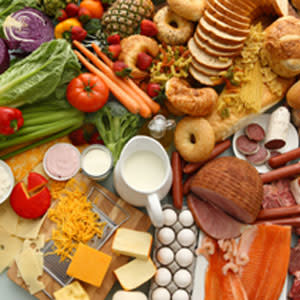What Does “Organic†Really Mean?

Robyn O'Brien, AllergyKids Foundation:
Now I'm not sure about you, but when I first heard the term "organic" several years ago, I dismissed it. It connoted a "status" and conjured up two different images: the lifestyles of the rich and famous and an alternative, hippie lifestyle. Since I didn't relate to either, it seemed to be a select way of eating for a select few.
Boy, was I wrong.
The term "organic" actually refers to the way agricultural products are grown and processed. It includes a system of production, processing, distribution and sales that assures consumers that the products maintain the organic integrity that begins on the farm, according to the Organic Trade Association (OTA).
The U.S. Congress adopted the Organic Foods Production Act (OFPA) in 1990 as part of the 1990 Farm Bill. This action was followed by over a decade of public input and discussion, which resulted in a National Organic Program final rule published by the U.S. Department of Agriculture (USDA) in December 2000 and implemented in October 2002, according to the Organic Consumers Association.
These stringent standards put in place a system to certify that specific practices are used to produce and process organic agricultural ingredients used for food and non-food purposes.
National organic standards set out the methods, practices and substances used in producing and handling crops, livestock and processed agricultural products. The standards include a national list of approved synthetic and prohibited non-synthetic substances for organic production.
In other words, just to give an example using the egg recall disaster, the way that the chickens were treated on the farms recalling the eggs wouldn't fly in organic agriculture and livestock production which place a higher standard on both the treatment and the livestock feed of the animals.
Organically produced foods also must be produced without the use of:
Antibiotics
Synthetic hormones
Genetic engineering
Other excluded practices
Sewage sludge
Irradiation
Cloning animals or using their products would be considered inconsistent with organic practices. Organic foods are minimally processed without artificial ingredients, preservatives, or irradiation to maintain the integrity of the food.
This is a key definition that is worth repeating (especially for those of us trying to reduce our families' exposure to sewage sludge, synthetic growth hormones and antibiotics in food):
Organically produced foods also must be produced without the use of antibiotics, synthetic hormones, genetic engineering and other excluded practices, sewage sludge, or irradiation. Cloning animals or using their products would be considered inconsistent with organic practices. Organic foods are minimally processed without artificial ingredients, preservatives, or irradiation to maintain the integrity of the food.
National organic standards require that organic growers and handlers be certified by third-party state or private agencies or other organizations that are accredited by USDA. Anyone who knowingly sells or mislabels as organic a product that was not produced and handled in accordance with the regulations can be subject to a civil penalty of up to $10,000 per violation.
Products labeled "100% Organic" and carrying the "USDA Organic" seal are just that - they contain all organically produced ingredients and none of those 'bullet points' listed above.
The scrutiny that these foods undergo is enormous and expensive, driving prices at the cash register. But when it comes to protecting your health, sometimes you just might want to pay a little bit more in the grocery store in order to pay less at the doctor's office. And check with your local farmers, as they often adhere to these standards, yet can't afford the fees associated with labeling their products.
And should you choose to invest in your health this way, you'll be joining a growing segment of the population and are not alone. The U.S. organic industry grew 21 percent overall in 2006 with organic foods and beverages continuing to be one of the fastest growing segments in the overall $598 billion food market.
Organic foods are increasingly sold in mass market grocery stores like Wal-Mart, Costco, Kroger and Safeway which represent the largest single distribution channel, accounting for 38 percent of organic food sales in 2006. Large natural food chains, along with small natural food chains or independent natural groceries and health food stores, represented about 44 percent of organic food sales. About 2 percent of organic food is sold through farmer's markets.
If you're anything like me, you might have rolled your eyes at this whole thing a few years ago, dismissing it as an expensive food fad. Nothing could be further from the truth. And while none of us can do everything, we can all do one thing. So the next time you are in your grocery store, consider purchasing something new and investing in your health with your shopping cart. You just might end up spending a little less time and a little less money in the doctor's office if you do!
Find Out More:
